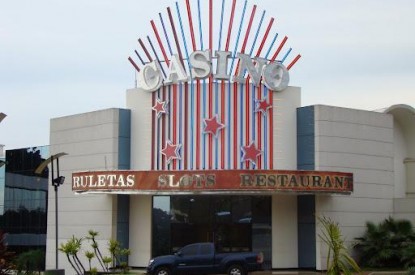Supplier News
Paraguay – Paraguay’s Gaming Board criticised over licence extensions
By Phil - 12 October 2016
The Controller General of the Republic of Paraguay has criticised the Gaming Control Board (CONAJZAR) over its granting of gaming licence extensions.
The government office, which holds government bodies into account over their actions and is responsible for auditing the financial and program use of government resources, has asked that CONAJZAR justify the reasons behind its extension of provisional licences and why gaming operators have not been given fixed dates for complying more fully with application processes which are already underway.
According to the Comptroller General’s report a number of temporary licence authorisations date as far back as to 2003 and a total of ten gaming companies are currently operating under temporary licences issued to them by the Gaming Board. It also noted that although Paraguay’s gaming laws, do not set a time limit for the granting of licences on a temporary basis CONAJZAR as the controlling body must establish a precise limit for the end of the provisional status of licences either by resolution or by the final issuing of a contract.
As well as criticising the board over a number of administrative matters the office added that upon completion of the set time, CONAJZAR should proceed to a competitive bidding process, as established in Paraguay’s gambling laws.
“The National Commission on Gaming must justify the reason for continuing to grant provisional authorisations for licence holders, without setting a specific deadline and initiate procedures designed to regularise as soon as possible the legal form of the granting of the (licences) for the operation of gambling, according to the correct procedures,” the Comptroller’s General’s office said in a statement.
Members of the Paraguayan gaming board have repeatedly gone on record to say that the board is understaffed and does not have the necessary resources to regulate the industry. As as result since 2014 CONAJZAR has been pushing for a bill that would make it an entirely autonomous body. One of the primary purposes of the new bill is to give CONAJZAR its own legal status, its own budget and full autonomy so that it will no longer be part of the Ministry of Finance. In April 2015, CONAJZAR announced that the bill had already obtained the approval of the Executive branch.
The new law is currently making progress through the Paraguayan Congress. The law also emphasises the importance of the emergence of new technologies when it comes to the gambling industry as well as the need for the certification of gaming machines and equipment. In addition it calls for stricter control over the implementation of fees which would rely on a much more accurate knowledge on income generated by the industry.
Gaming tax revenues meanwhile continue to rise in Paraguay. According to the Paraguayan Gaming Commission (CONAJZAR) September saw tax revenues reaching a record high of Gs.10.172bn of which more than Gs.8.3bn was generated by Quiniela. The announcement means that tax revenue generated for the state has continued to increase since last year when for the first time gaming tax revenues surpassed the average level of Gs.8bn per month.
In an interview with local press head of CONAJZAR Javier Balbuena said that before May 2014 revenue for Quinela stood at just Gs6bn. The increased revenue will mean a significant increase in resources for the Department of Social Welfare and Assistance (DIBEN), which receives 30 per cent of gaming tax revenue. The remaining share is distributed to the departmental governments (30 per cent), the municipal governments (30 per cent) while the remaining (10 per cent) goes to the Treasury.
However, the gaming board receives no portion of gaming income as it is still part of the Ministry of Finance. Balbuena once again pointed out that the gaming board was in need of additional staff and resources in order to more fully regulate the industry and emphasised the necessity for an independent gaming board. “With two vehicles and 12 members of staff it is impossible to do all the work we have to do,” he said.
When it came to the increased revenues the official said: “We must recognise that the system between the previous concession and this one is totally different, there is a relationship between the institution and the concessionaire that is very important.” Balbuena did say, however, that illegal gaming continues to be an issue and that if the board managed to reduce illegal gambling then revenues for the state would increase significantly.
In January it was revealed that tax revenue generated by the gaming industry in 2015 was up by over 7.6 per cent compared to 2014 standing at U$S18m at the end of 2015 – the highest for five years. According to CONAJZAR, the rise in tax revenue was made possible through the application of technology in controlling the operation of gaming, changing the way Quiniela was taxed, and the intensification of audits on gaming. In addition CONAJZAR has implemented a series of additional controls over gaming nationwide and also increased scrutiny over operators as part of a wider government crackdown designed to increase tax revenue and regulate the industry further. This is despite a small budget and a shortage of staff.


